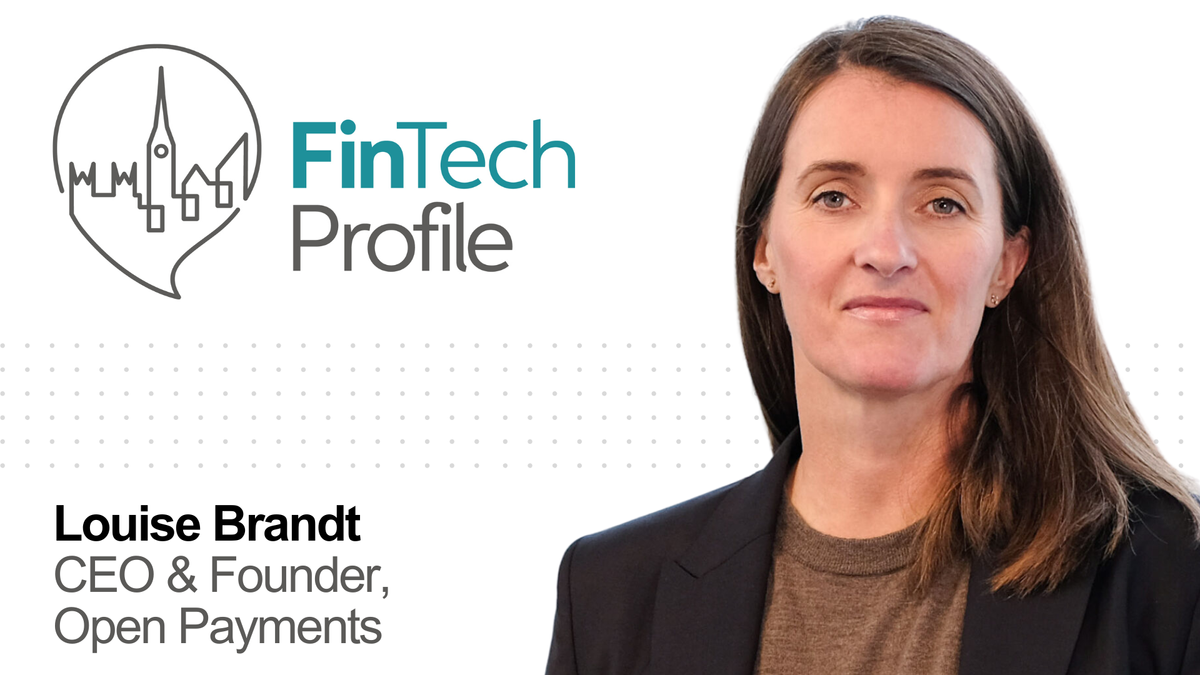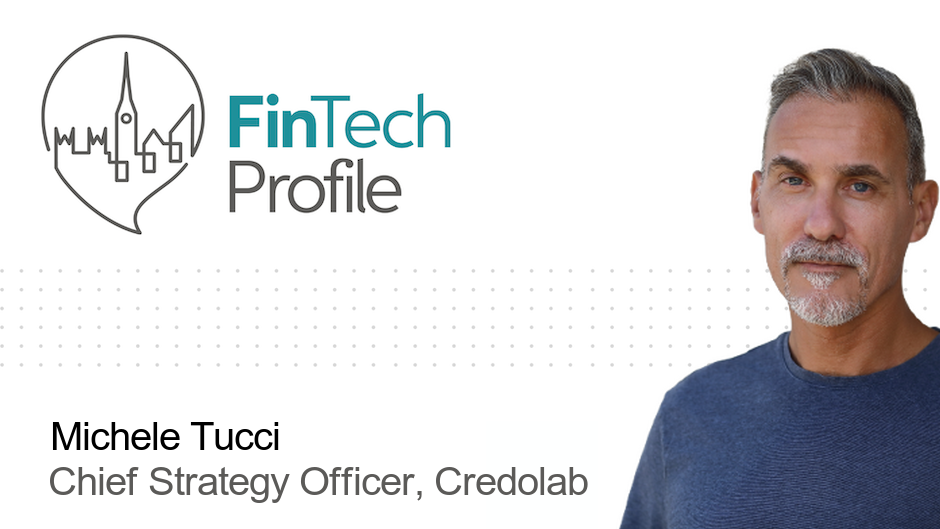Louise Brandt, CEO & Founder, Open Payments

Today we're meeting Louise Brandt, the CEO & Founder of Open Payments, the one-stop-shop solution for payment, accounting and treasury services.
Over to you Louise - my questions are in bold.
Who are you and what's your background?
I’m Louise Brandt, founder and CEO of Open Payments. I spent a significant part of my early career in the US, where I earned a Bachelor of Science in Applied Economics from the University of Minnesota.
The experience gave me a fresh perspective on business and was part of shaping how I approach challenges and opportunities today. After returning to Sweden, I first co-founded a company with my sister and later became a co-owner of another business.
These early entrepreneurial experiences eventually led me to iZettle, where I was one of the first employees. iZettle was a trailblazer in the fintech space, being the first company to offer mobile payment solutions to businesses, which was very disruptive at the time. It was an incredible journey, and I stayed with them until PayPal acquired the company in 2018 for 2 billion EUR.
With extensive experience in the startup and fintech sectors my expertise covers business development, expansion, and strategic partnerships. My passion lies in transforming innovative ideas into real-world solutions that drive sustainable growth in the fintech sector. I left iZettle because I wanted to embark on a new journey and build my own company.
With the experiences and insights I gained, I started my journey with Open Payments to create a new fintech venture and continue driving innovation in the industry.
What is your job title and what are your general responsibilities?
As founder and CEO, my role involves a mix of strategic planning, team leadership, and making sure our day-to-day operations run smoothly. We're all about revolutionizing how payments work through Open Banking, aiming to make financial transactions more transparent and efficient.
I work with our management team to set and implement strategies that help us reach our goals. This includes keeping an eye on market trends, staying on top of regulatory changes, and pushing key projects to improve our API-driven payment platform. As a growing company, I feel fortunate to spend time with everyone. This allows me to really get to know each person, quickly address any issues that arise, and help improve our workflows and culture together.
Building strong relationships with our stakeholders is also a big part of what I do. I handle communication and reporting with our investors, as well as represent Open Payments at industry events. On the product side, I collaborate with a team of absolutely brilliant individuals.
Together, we focus on customer feedback and using the latest technology to continually develop and innovate our offering. It’s all about making sure we’re delivering what our customers really need and staying ahead of the curve. This constant drive to get better is what keeps us motivated and excited about what we do.
Can you give us an overview of your business?
Open Payments is a leading platform in the open banking space, specifically designed for B2B transactions. Our single, modular API enables businesses to integrate various banking services directly into their existing systems.
This allows businesses to handle domestic and cross-border payments, account reconciliation, and cash management, all in one place. By embedding these functionalities into clients' ERP systems, payment providers, and other financial applications, we streamline financial operations and enhance efficiency. Built on the principles of the PSD2 directive, our platform ensures compliance and security at every level.
We offer:
- Seamless integration: Our single API approach eliminates the complexities of managing multiple banking integrations, saving time and money as well as reducing errors.
- Security and compliance: We are licensed by Finansinspektionen, Sweden’s financial supervisory authority, and we comply with the PSD2 directive, ensuring that all transactions are secure and compliant.
- Scalability: Our platform is designed to grow with our clients’ businesses, supporting everything from small enterprises to large multinational corporations.
The response to our platform has been overwhelmingly positive. Our clients appreciate the simplicity and efficiency of our solution, and we’ve seen significant growth in our customer base as a result. In summary, Open Payments is leading the way in open banking providing innovative, secure, and scalable solutions that simplify B2B payments and financial operations. I’m incredibly proud of what we have achieved together. It’s truly a collective effort, and our success comes from the dedication, creativity, and collaboration of every team member. It’s exciting to see how far we’ve come and to think about the future possibilities.
Tell us how you are funded?
We’ve been lucky to receive strong support from several key investors. Our funding rounds have included investments from Industrifonden, Sony Financial Ventures, Global Brain Corporation, Luminar Ventures and selected angel investors with extensive expertise from various companies. This financial backing helps us expand our team and enhance our platform across the Nordic and European markets.
What’s the origin story? Why did you start the company? To solve what problems?
The idea for Open Payments was born out of the frustration we saw in the B2B payment landscape. Businesses were struggling with the complexity and inefficiency of integrating multiple banking services into their existing systems. Each integration was time-consuming, prone to errors, and often required significant resources to maintain. We knew there had to be a better way.
We developed Open Payments to simplify these integrations through a single, modular API that aggregates multiple bank APIs. This approach not only saves businesses time and money but also reduces the risk of errors, making financial operations smoother and more reliable. The functionality we provide also opens up new opportunities for our clients, enabling them to innovate and enhance their own offerings in ways that weren’t possible before.
By addressing these key pain points, we provide businesses with a robust, secure, and scalable solution that enhances their financial operations. Our platform not only streamlines processes but also empowers businesses to focus on their core activities, confident that their payment systems are reliable and future-proof.
Who are your target customers? What’s your revenue model?
Our primary customers are large and medium-sized enterprises that need seamless and secure integration of banking services into their business systems. This includes ERP and accounting providers, treasury systems, and other financial services. Our revenue model is based on a platform fee for access to our infrastructure, with additional charges for premium features and services.
If you had a magic wand, what one thing would you change in the banking and/or FinTech sector?
I’d remove the barriers to interoperability and collaboration between traditional banks and fintech companies. One of the biggest challenges we face in the fintech sector is the lack of open collaboration between these entities.
Traditional banks often operate on legacy systems that aren’t designed to work with the agile, innovative solutions that fintech companies offer. This fragmentation hinders the potential for innovation and leaves businesses to navigate a complex web of incompatible systems.
By removing these barriers, we would allow traditional banks and fintech companies to collaborate more effectively, ultimately delivering better products and services to businesses and consumers alike. I believe that by fostering a more collaborative environment, we can drive the financial industry forward, making it more inclusive and efficient.
What is your message for the larger players in the Financial Services marketplace?
To the larger players in financial services: Embrace open banking and collaboration with fintechs. Partnering with fintech companies can enhance your service offerings, improve customer experiences, and help you stay competitive in an ever-evolving market.
Where do you get your Financial Services/FinTech industry news from?
I like to stay informed by pulling from a variety of sources, e.g. Sifted, Finextra, Open Banking Expo News and The Paypers.
I subscribe to newsletters that keep me up-to-date on the latest industry trends and developments. I also follow different companies to see what innovations they’re bringing to the table.
Podcasts are another great resource for me; I enjoy listening to discussions with industry leaders and experts. And of course, some of the best insights come from casual conversations with friends and colleagues who are also in the industry. This mix of different perspectives helps me stay informed and inspired.
Can you list 3 people you rate from the FinTech and/or Financial Services sector that we should be following on LinkedIn, and why?
I usually prefer to gather information from different sources, but if I have to name a few it would be Marie Walker, Marcel van Oost, and Linas Beliūnas.
What FinTech services (and/or apps) do you personally use?
Revolut, Apple Pay
What’s the best new FinTech product or service you’ve seen recently?
One of the more exciting trends I’ve noticed in fintech is how treasury management companies are using Open Banking to up their game.
We’ve had the chance to meet with innovative companies like Fxity, Treasury Systems, and SkySparc. They’re integrating Open Banking to offer smarter, more efficient solutions for managing liquidity and FX, and it’s impressive to see how they’re pushing the boundaries of what treasury management can do.
Finally, let's talk predictions. What trends do you think are going to define the next few years in the FinTech sector?
Quite naturally I believe that integrating AI and machine learning with financial services will continue to evolve. These technologies will enable personalized banking experiences, enhance fraud detection, and streamline operations.
Additionally, the ongoing growth of open banking will lead to more financial services increasingly adopting API-first approaches, enabling seamless integration and collaboration with fintech startups and other third-party developers.
More companies will offer white-label financial products, allowing non-financial brands to provide financial services under their own branding.
Louise, thank you so much for taking the time to participate!
You can read more about Louise Brandt on LinkedIn and visit her company Open Payments at https://www.openpayments.io/.




